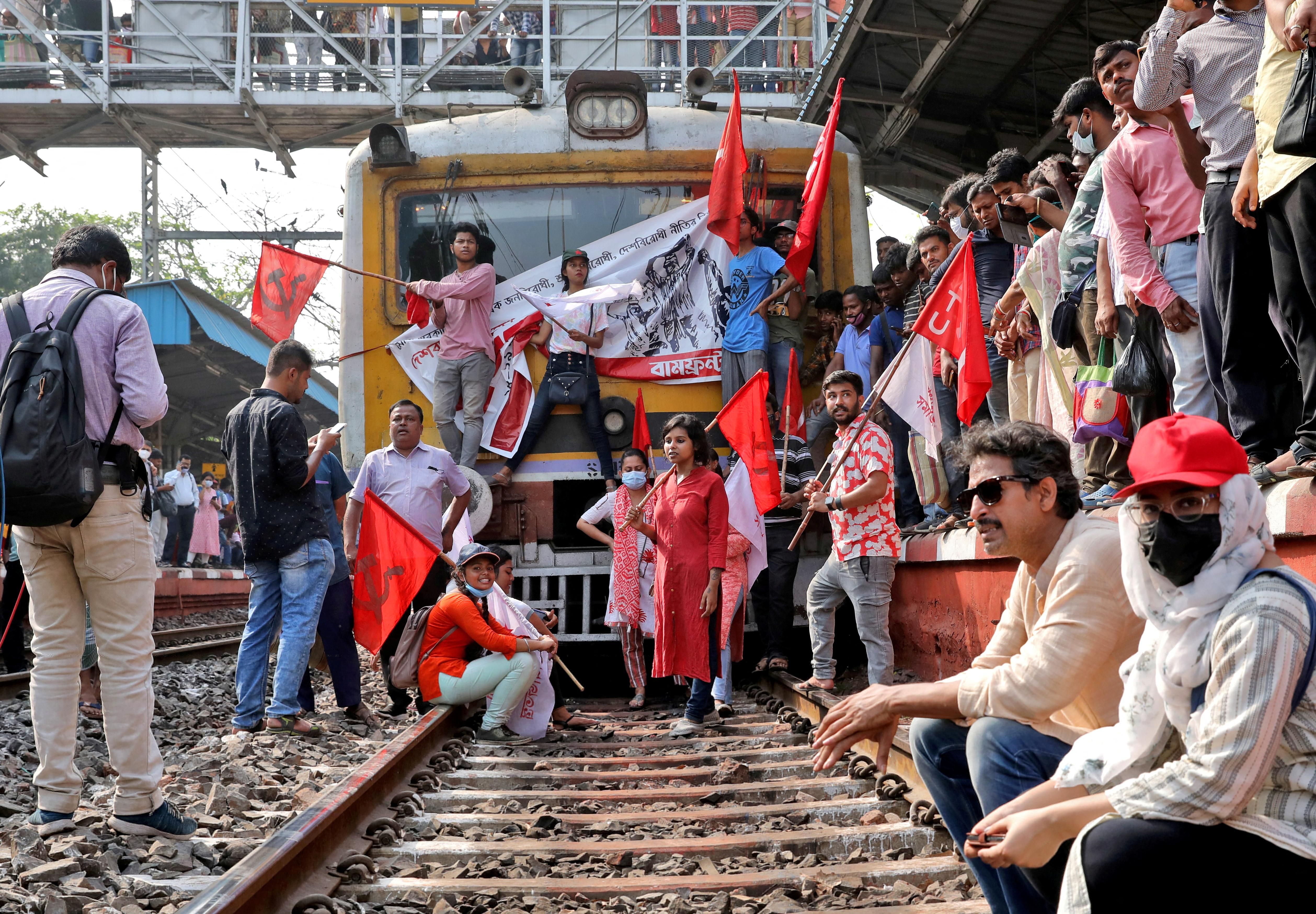2: Indian workers began a two-day nationwide strike on Monday to protest Prime Minister Narendra Modi’s economic policies. The strikers oppose the government’s attempt to privatize some state-owned assets, which they say will boost prices. They are also calling for a greater safety net for workers in the informal economy, who account for 80% of Indian workers.
4.50: Global oil prices fell $4.50 a barrel on Monday after Shanghai entered a city-wide lockdown to contain a COVID-19 outbreak. Traders were concerned about further supply chain disruptions and a drop in demand as China’s financial capital – home to 25 million people – prepared to shut down.
5.8 trillion: The Biden administration unveiled a $5.8 trillion budget plan Monday that aims to reduce the national deficit in part by introducing a new tax on those worth more than $100 million. The White House’s recent focus on fiscal responsibility comes amid fears that still-high inflation will hurt Democrats ahead of midterm elections this November.
120 million: The European Union has seized assets worth
120 million euros ($130 million) linked to alleged money laundering activities by Lebanese officials. These include properties in Germany, France, and Luxembourg. Though it's unclear which individuals the operation was directed against, high-ranking Lebanese officials have for decades embezzled public funds while the country descended further into
economic and political crises. 